Archive for the ‘shopping’ Category
Tuesday, July 19th, 2011
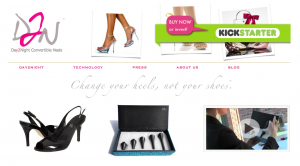
I had the pleasure of talking to Candice Cabe, who is the CEO of an innovative startup called “Day2Night Convertible Heels.” Her company focuses on simplifying life for women who want to be both practical and stylish. Her business targeting women-on-the-go, and is quickly plunging into the entrepreneurial world. We spoke briefly about her ventures, as well as what it’s like to be a small-business owner in today’s quickly-changing world of business. Thank you, Candice for speaking to me and sharing your experiences with our readers. We wish you the best of luck in the future!
Tell us a little bit about your business and what makes it unique.
We invented a high heel shoe that converts from high heels down to lower heels. It is a new kind of technology. The shoes have interchangeable heels so that women can wear the same pair of shoes but adjust the heel height. It’ll be the first time that women can wear fashionable and much more comfortable shoes at the same time.
What prompted you to start this business? Was there a problem you aimed on solving?
The main problem is that women love to wear high heels, but usually after a few hours of wearing them, their feet really start to hurt. They’re usually forced to carry extra shoes with them in their bag to wear to work in the morning or to go out at night.
One of the stories that I tell a lot is that I was packing for a trip – I had to go on a corporate trip down to Miami for a few days and I was told to pack lightly and not check baggage. I was trying to fit all of these shoes into my little tiny suitcase and I noticed that I ended having three pairs of shoes that looked similar but all had different heel heights, depending on what I was going to be doing. I knew that immediately when I was getting off the plane, we were going to be chartering a boat and going on that for a few hours, so I was going to need small heels. Later, we were going to be walking around the tradeshow for a few hours. I needed to look appropriate in my suit and wear medium-height heels. Then we were going to go out for a fancier dinner at night so I needed to have high stiletto shoes. All my shoes looked the same but had different heel heights. Also, they were taking up so much room in my suitcase. I thought that it would be so nice to have a travel shoe – one shoe that you can wear to multiple occasions.
What are your short-term goals for the next year? What kind of things is your business focusing on?
Right now we’re working on refunding and financing. We’re trying to get some money in the door to finish prototyping. We are also going to have to invest in getting a mold made. Once we have a mold, we’ll be able to mass-produce the shoes in China. We’re also looking for a shoe designer and a shoe manufacturer. We already have one, but we’re looking for an alternative one. We’re also trying to close some deals – we’re hoping to do a licensing deal with an existing shoe company. We’re talking to companies like Steve Madden and zappos.com. It would be great to get a licensing deal with a larger shoe company.
What do you see as the biggest challenges for small businesses in today’s society and economy? What do you see as the best solutions to these challenges?
Funding, for sure, is number one. Another one is building a team and getting people to work for straight equity instead of money is difficult – so getting people to either quit their jobs or to work for you full time.
The biggest thing that I’ve done is just talk to everybody I know or everybody I can think of. I go to a lot of networking events and tell people what I’m trying to do and what I’m struggling with. People always want to help, especially if you specifically tell them what you’re struggling with, which makes it easy for people to introduce you to other people.
From your experience, what are the best ways to advertise yourself? Do you make use of tools like social media?
We have been using a lot of social media tools. We use Facebook and Twitter and we have our own website. We’re working on search engine optimization, for example Google keywords.
Where do you go to find advice or to get information that is relevant to your business? Where would you recommend that other small businesses in the community go? How do you connect with other businesses?
There’s a book that I’d like to recommend to people. It’s called The Four Steps to the Epiphany. That’s a book that is helpful for this kind of business that can help business owners get some customers and prove that people want things in the way that you’re doing them. It’s a good way to get information to people.
Have you had any problems with demonstrating trust to your potential clients or customers?
People seem to be pretty good with trust. Sometimes people have issues with our particular product. They are reluctant to believe that the product will hold up well and be sturdy enough and strong enough. What we’ve done to reassure customers is have a couple of videos on our website demonstrating the shoes, how they’re worn, and how they work. In the future, we’re hoping to get a lot of customer reviews, feedback, and testimonials from people. Communication is very important. We’re trying to put ourselves out there so that people can better understand what we’re doing.
If you could choose a dream spokesperson to represent your business, who would it be?
My dream spokesperson would be Carrie Underwood because we would love to have a celebrity that would be able to wear our shoes. I think that a lot of people would follow suit. She’s a rising star and an American Idol and holds a lot of credibility for young women in America.
What do you see as the future for small businesses like yours? Are you seeing any trends or changes developing?
I’m in the startup world of Boston, which is a really big startup community and city. It seems that more and more young folks are starting businesses right out of college. Instead of graduating college and immediately trying to find a job, people are thinking creatively and taking entrepreneurial courses or looking up to other young startups.
Do you have any parting comments or words of advice to our readers and the small business community?
If you have an idea, you should act on it. Ideas can be a dime in a dozen, but it’s really about execution. I think that if people put all of their effort into starting a business…if they’re passionate about it and tell everybody they know about it, then almost anyone can start their own business. I encourage people to start their own businesses and try to ground themselves with people who have done so and been successful. It’s good to have mentorship from people who know how things work.
I hope you enjoyed reading this interview and I hope you gained something from Candice’s words of wisdom and many insights into what it’s like to own a start-up. What do you think of her ideas?
Feel free to leave feedback here or contact Candice through her site: https://www.convertible-heels.com/Day2Night.html
Support her business here: https://www.kickstarter.com/projects/2072356942/day2night-convertible-high-heel-shoes
 Tweet This Post
Tweet This Post




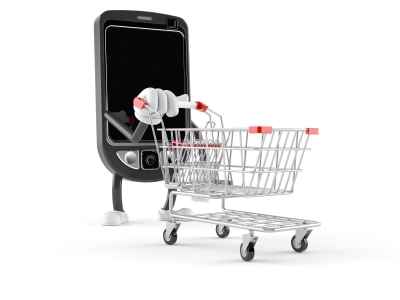


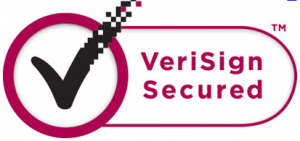

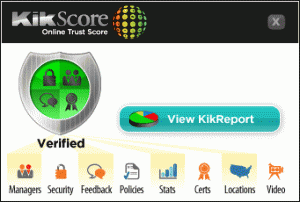
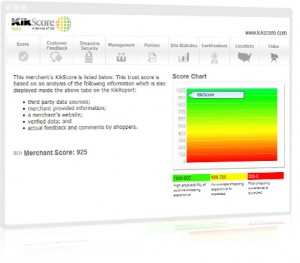

 As cybercriminals become more advanced and efficient, all businesses must recognize and prepare for the imminent threats of online hackers. The issue of cyber-attacks has made its way to the Senate, debating the amount of power the president should have in dealing with cybercrimes (Full story
As cybercriminals become more advanced and efficient, all businesses must recognize and prepare for the imminent threats of online hackers. The issue of cyber-attacks has made its way to the Senate, debating the amount of power the president should have in dealing with cybercrimes (Full story 
